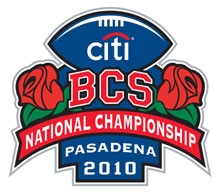The most iconic stadium in the history of college football is about to get a very expensive upgrade. Yesterday, the Pasadena City Council approved a $152 million financing plan for a major renovation of the Rose Bowl
Stadium.
It is the largest investment in the history of the 88-yearold iconic structure. The financing plan includes lease extensions that will ensure UCLA will play its home games at the Rose Bowl Stadium through 2042 and the Rose Bowl Game will be played there through at least 2043.
The focus of the multimillion dollar, three-phase project is improving tunnel ingress/egress, improving concourse circulation, increasing the number of concession stands and restrooms, providing state-of-the-art premium seating products in a rebuilt press box, a new scoreboard and cutting-edge video board.
The renovation will also address key stadium infrastructure needs that will allow the facility to continue to operate for decades to come.
Work would begin in January 2011 and continue outside the football season through August 2013. Primary funding for the renovations would come from bonds to be issued by the city of Pasadena.
“The renovation of the Rose Bowl Stadium is a vital piece of maintaining the history of the Rose Bowl Game and ensuring its success,” said Tournament of Roses Executive Director Scott McKibben.
“We are confident we will remain the premier bowl game annually for our participants, spectators and broadcast audience throughout the world with proper enhancements to this storied facility.
Along with our partners, and the support of our member conferences, we look forward with great anticipation to the start and completion of this historic project.”
Next and final steps prior to groundbreaking are for definitive agreements to be finalized and financing of the bonds being secured. Both are anticipated by mid-November.
A private philanthropic group, Legacy Connections, Inc., will conduct a fundraising campaign to raise funds for additional project elements to complete the renovation. Legacy Connections consists of business leaders who believe in the iconic, historic nature of the Rose Bowl Stadium and want it improved and maintained at the highest level.

